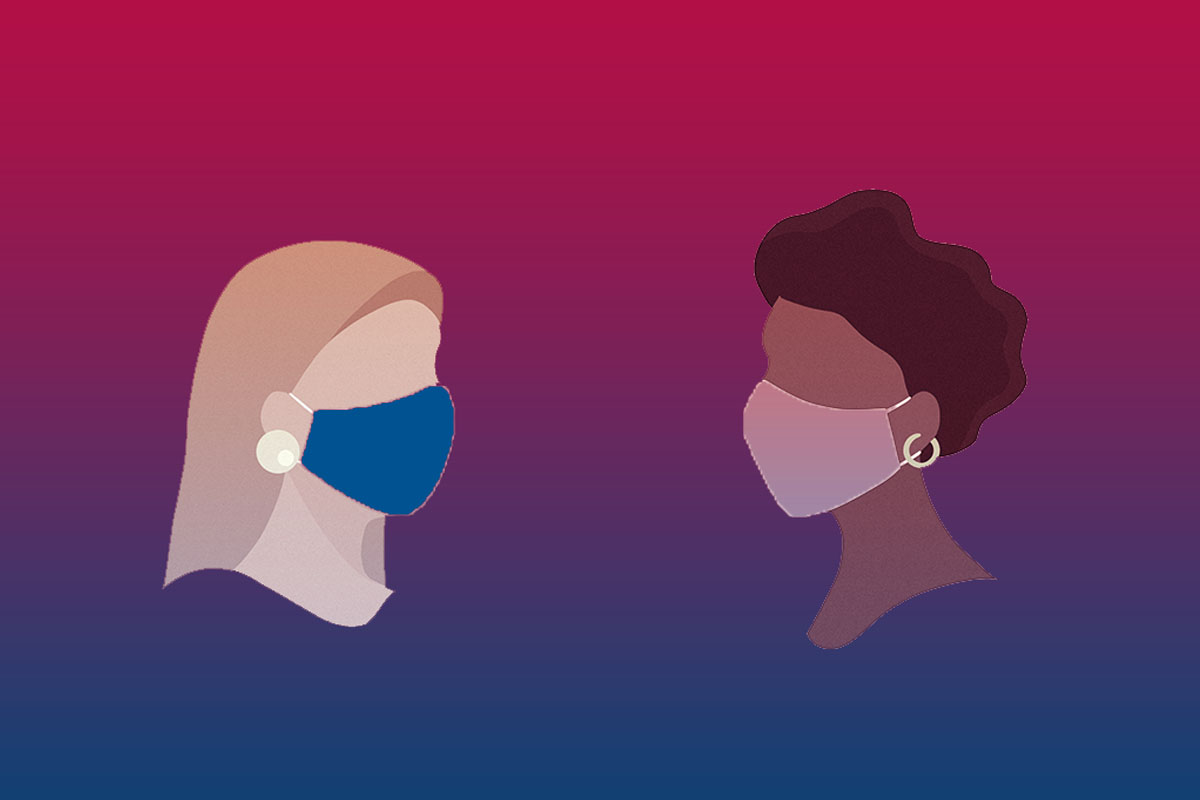After the first few weeks of the pandemic lockdown, I became acclimated to a very limited social circle consisting of the residents of my home: my husband and my daughter. I enjoyed seeing friends, colleagues, and relatives on Zoom while attending temple services, meetings, classes, birthday parties, seders, shivas and even a bar mitzvah. My need to see real people — in real life — outside of my household was satisfied by the occasional, socially distanced and masked walks with friends, and by nodding at passing neighbors and strangers.
As weeks went by, however, and I found myself actually looking forward to going food shopping or to CVS, I realized I desperately needed more human contact. More than anything, I longed for that special interaction that occurs only over a meal. That’s when I decided to start inviting guests to dinner. Even if these gatherings were going to involve unusual and distanced manners, I was giddy with anticipation: I was going to share a meal with people — people who were not my relatives!
My husband and I were wary of entertaining inside, but we felt comfortable that we could safely host guests outdoors. Armed with the CDC guidelines, we measured our deck and set up three small tables, each six feet apart from the others.
Entertaining dinner guests has always been a joy for me — but it’s a challenge as well. Our friends have a variety of food preferences, from vegan to omnivore, as well as a range of food allergies and intolerances. Many of them follow Jewish dietary laws as well, though their levels of observance range from “ingredient kosher” — meaning they don’t require rabbinical certification — to glatt kosher, which technically means using meat from animals from defect-free lungs but colloquially means a food was processed under a stricter standard of kashrut.
When it came to Covid safety practices, I was somewhat aware of variations and preferences. But little did I know the vast array of people’s comfort levels, until I started extending invitations. One couple would eat hot food prepared by others but not cold dishes. Another insisted on bringing their own dinner. Various friends had different requirements for social distancing, ranging from six to fourteen feet. One was comfortable with a limit of four people total, regardless of the amount of outdoor space. Several did not want to eat with anyone outside of their household.
As new studies and anecdotes proliferated, so did concerns and solutions. The result was dizzying. One time, I had a pre-dinner meltdown when I tried to mix different Covid safety needs in one meal.
I found myself feeling irritated, especially with friends whom I couldn’t accommodate, no matter what I did. I wanted to shake them — but of course I couldn’t touch them. (And, honestly, that’s just not my style, even if we weren’t in the middle of a pandemic!) I joked that these friends were “glatt Covid.” Some thought that was funny. Others not so much.
“They’re overreacting!” I complained to a friend who was cautious, in my view, but less stringent. Then I remembered that I had refused a couple of “well ventilated and masked” indoor invitations. Then it struck me: to some of my friends, I was the one who was “glatt Covid.”
As we talked, I suddenly recalled a joke I heard years ago about religious intolerance toward fellow Jews. Question: What’s the difference between a religious fanatic and a heretic? Answer: One mitzvah!
I wondered: Was I being just as intolerant about Covid observance? That’s when I opened up a fortune cookie from a take-out dinner (eaten outside, at a distance of six feet from others). It said, “When you act with compassion you will never be wrong.” I read it a few times. It spoke to me.
In my feelings of loss and anxiety — feelings that so many of us are experiencing during the pandemic — I realized I was sometimes focusing so much on my own needs that I was losing sight of those of others. I want to become more accepting, more compassionate toward differing Covid practices, as long as I can adequately protect myself according to my own standards.
My friends, like all people, are all different. They have a variety of preexisting conditions, dispositions, and psychological needs — many of which I may not be privy to or even able to understand. But they are my friends. It may be some time before I’m able to eat with some of them, and that makes me sad. But I can keep in contact in non-food oriented ways: We can go for a masked walk together, or chat across the yard, or simply just connect by phone.
What’s more, I am more grateful than I could have previously imagined for those in my social circle who are happy to commune over a meal. This makes their company, under these circumstances, all the more precious.
As the weather in New England cools down, I’m optimistic that, equipped with my propane heater, long underwear, and copious fleece blankets, I will enjoy several more weeks of outdoor dining with guests. Given the warm autumn that’s predicted, we may even make it to Hanukkah — now that would be a miracle.
Header Image by Ada Yokota/ Getty Images








